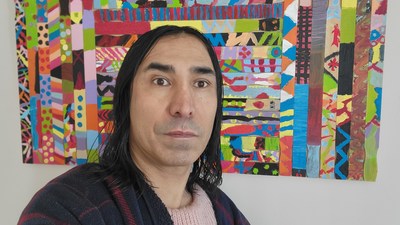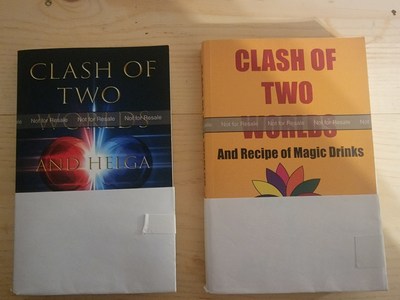His Book Clash of Two Worlds, Romantic Adventure and Fantasy Thriller, shows conflicts between conservative and liberal values, deceptions, and delusions.
NEW YORK, Dec. 12, 2022 /PRNewswire/ — Su Son is going to work with literary agent N. H. Hushvaktov, a businessman and former media lawyer, to represent his novel “Clash of Two World and Recipe of Magic Drinks.”
Su, in a series of tweets @SuSonXyz, said, “When I finished a draft of Clash of Two Worlds that takes place in southern Uzbekistan, I asked top writers in Tashkent if they knew any literary agents. They said that they had never heard of such a profession. Literary agents didn’t exist in the ex-USSR. The Soviet publication systems evolved differently than the American counterpart. Under the Soviet system, writers worked directly with publishers. So, Uzbek people ask me why I would need an agent. And yet, North Americans say, ‘Isn’t there plenty of agents in Canada and the US?'”
There are more questions than answers. Su’s novels are in English. It’s typical that agents represent clients in their native languages and then work for translation rights with foreign co-agents. But Mr. Hushvaktov seems to be doing it differently. Surely, he might have plenty of connections with publishers, but can he pitch Su’s Clash of Two Worlds to international publishing houses which are mostly in English?
Answering some of the above hypothetical questions, Su says, “As a member of the Romance Writers of America, I had attended numerous conferences and met with best-selling writers, agents, and editors of publishing houses. I’m familiar with the process. On the surface, it looks nice and smooth, but many writers and even literary agents see problems with the American publishing system. It’s trend oriented. There are rigid requirements to follow certain plot tropes. Agents used to tell us what type of fiction they wanted. And editors from publishing houses too desired and accepted plot tropes and story types that were in demand. My fiction wouldn’t fit their templates and specifications because there was no such fiction in the market as mine.”
Having confidence in his agent, Su says, “I don’t see American writers getting enough support. Most of them market their own books despite having agents and publishers. In my case, I think, my agent will do things differently. Apart from loving books, he works like a venture capitalist. He takes a risk by promoting the author with his own funds. Hires and hosts journalists to explain the story to the public. He pays and flies his authors to any major book fairs, which authors otherwise might not attend because of costs. He pays to translate the book into multiple languages. Generally, his mind always races ahead of schedule, him thinking about motion scripts and many other ideas.”
The time will show how Su Son and his agent’s efforts will unfold. Nevertheless, the novel is set in southern Uzbekistan, about fifty miles north of the Taliban’s Afghan border. Also, the area is surrounded by Iran, China, and Russia. The location seems to be perfect for a story that shows the collision of conservative and liberal conflicts values. It’s true that such conflicts are global, and one can observe them in the US, Turkey, Europe. But such antagonisms of old-fashioned and liberal values would be more dramatic and colorful when they take place just north of Afghanistan in a former Soviet territory. Dictatorial regimes, deceptions, and delusions exist all around the world, however, they can be better demonstrated in the ex-USSR because of its history. Moreover, Mr. Hushvaktov could understand scenes and themes of the novel faster than his western counterparts who had not lived under dictatorship or socialism.
More information on Su Son can be found at SuSon.Xyz.
Rashid Nabiev
248-266-5858
350163@email4pr.com
SOURCE Su Son



